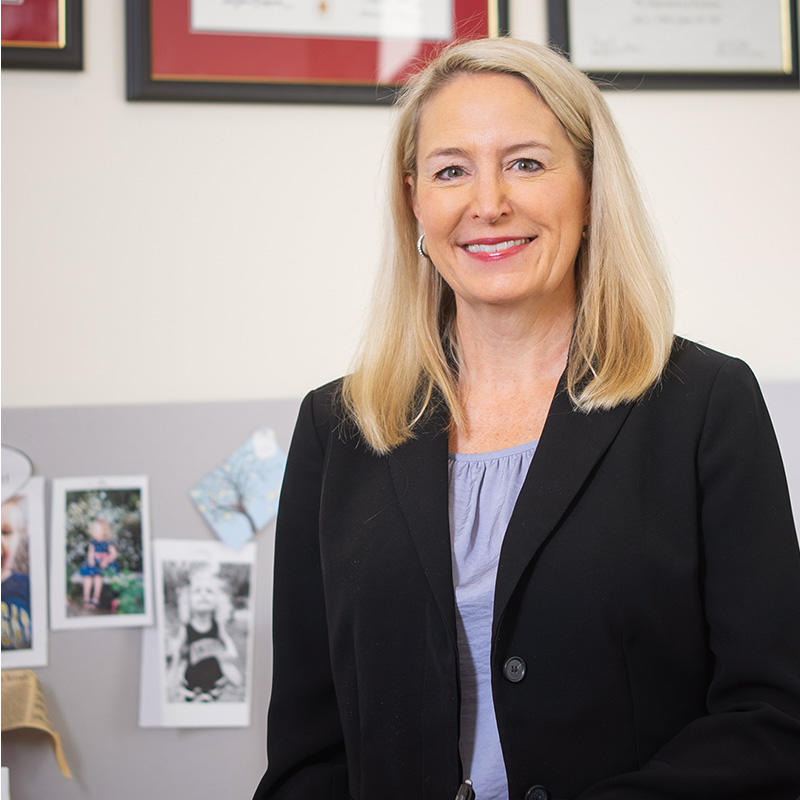- Codirector, Cancer Control and Outcomes Program, ECOG-ACRIN Cancer Research Group
- Multiple-Principal Investigator, ECOG-ACRIN NCI Community Oncology Research Program Research Base
- Professor, Social Sciences and Health Policy, Wake Forest University School of Medicine
Dr. Lynne Wagner has a passion for learning from patients and designing cancer clinical trials for adolescents and young adults (AYAs) that ensure their voices are heard. AYAs are underrepresented in patient-reported outcome data, but Lynne wants to change that. With CCDI funding, ECOG-ACRIN Cancer Research Group (ECOG-ACRIN) is conducting the EAQ202 trial to study whether letting AYAs choose what quality of life aspects they want to discuss improves how patient-reported outcomes are captured and shared.
She believes hearing from patients directly about their experiences is crucial, and that data related to, for instance, anxiety, depression, fertility, employment, financial toxicity, and social isolation, can break down communication barriers between patients and providers and help personalize interventions. “The strength and resiliency of AYA survivors is always inspiring,” said Lynne. “We want to ensure we’re working with them to learn from this difficult life experience, to improve health for all patients.”
